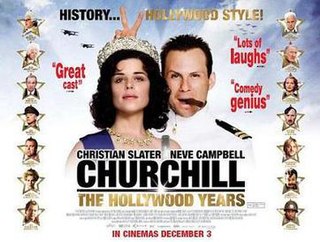
"Dazed and Confused" is a song written by American singer-songwriter Jake Holmes in 1967. Performed in a folk rock-style, he recorded it for his debut album "The Above Ground Sound" of Jake Holmes. Although some concluded that it was about a bad acid trip, Holmes insists the lyrics refer to the effects of a girl's indecision on ending a relationship.

The Siegfried Line, known in German as the Westwall, was a German defensive line built during the 1930s opposite the French Maginot Line. It stretched more than 630 km (390 mi) from Kleve on the border with the Netherlands, along the western border of Nazi Germany, to the town of Weil am Rhein on the border with Switzerland. The line featured more than 18,000 bunkers, tunnels and tank traps.

James Kennedy was a Northern Irish songwriter. He was predominantly a lyricist, putting words to existing music such as "Teddy Bears' Picnic" and "My Prayer" or co-writing with composers like Michael Carr, Wilhelm Grosz and Nat Simon. In a career spanning more than fifty years, he wrote some 2000 songs, of which over 200 became worldwide hits and about 50 are popular music classics.

"Jerusalem of Gold" is an Israeli song written by Naomi Shemer. Often contrasted with the official anthem Hatikva, the original song described the Jewish people's 2,000-year longing to return to Jerusalem. Shemer added a final verse after the Six-Day War to celebrate Jerusalem's re-unification.

Churchill: The Hollywood Years is a 2004 British comedy film directed by Peter Richardson, who also wrote the screenplay with Pete Richens. The film stars Christian Slater as Winston Churchill, and Neve Campbell as Elizabeth II. Miranda Richardson and Antony Sher also co-star.

The Entertainments National Service Association (ENSA) was an organisation established in 1939 by Basil Dean and Leslie Henson to provide entertainment for British armed forces personnel during World War II. ENSA operated as part of the Navy, Army and Air Force Institutes. It was superseded by Combined Services Entertainment (CSE) which now operates as part of the Services Sound and Vision Corporation (SSVC).

Ole Anders Olsen, known professionally as Andy LaPlegua, is a Norwegian singer and songwriter, originally known for being founder and lead vocalist of futurepop band Icon of Coil. He also gained fame in the aggrotech and electro-industrial scenes as founder and lead vocalist of Combichrist and Panzer AG.

Bud Flanagan, was a British music hall and vaudeville entertainer and comedian, and later a television and film actor. He was best known as a double act with Chesney Allen. Flanagan was famous as a wartime entertainer and his achievements were recognised when he was appointed an Officer of the Order of the British Empire (OBE) in 1959.
Flanagan and Allen were a British singing and comedy double act most active during the 1930s and 1940s. Its members were Bud Flanagan and Chesney Allen (1894–1982). They were first paired in a Florrie Forde revue, and were booked by Val Parnell to appear at the Holborn Empire in 1929.

William Ernest Chesney Allen was a popular English entertainer of the Second World War period. He is best remembered for his double act with Bud Flanagan, Flanagan and Allen.

Leslie Sarony was a British entertainer, singer, actor and songwriter.
"Red Sails in the Sunset" is a popular song. Published in 1935, its music was written by Hugh Williams with lyrics by prolific songwriter Jimmy Kennedy. The song was inspired by the "red sails" of Kitty of Coleraine, a yacht Kennedy often saw off the northern coast of Northern Ireland and by his adopted town Portstewart, a seaside resort in County Londonderry.
Christopher Marsh Lindsey is a Grammy nominated American country music songwriter and record producer. He has created major hits for Taylor Swift, The Civil Wars, Adam Lambert, Carrie Underwood, Kenny Chesney, Kellie Pickler, Keith Urban, Tim McGraw, Faith Hill, Martina McBride, Sara Evans, Lonestar, and many others. Lindsey has over 250 commercial recordings of his songs selling 90 Million records and counting.
Geoffrey Stephens was an English songwriter and record producer, most prolific in the United Kingdom in the 1960s and 1970s. He wrote a long series of hit records, often in conjunction with other British songwriters including Tony Macaulay, John Carter, Roger Greenaway, Peter Callander, Barry Mason, Ken Howard, Alan Blaikley, Don Black, Mitch Murray, and Les Reed.
"25 Minutes to Go" is a song by Shel Silverstein, from his 1962 album Inside Folk Songs.
Jesse James became a hero in folklore and dime novels before he was killed in 1882. A manifestation of this was the emergence of a wide body of music that celebrates or alludes to Jesse James.
Michael Carr was a British popular music composer and lyricist, best remembered for the song "South of the Border ", written with Jimmy Kennedy for the 1939 film of the same name.
John Sinclair Lumsdaine was an Australian singer and songwriter.
This is a summary of 1939 in music in the United Kingdom.










